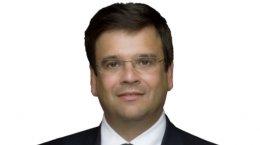Interest rates in India have peaked, a deputy governor of the RBI said on Thursday, as data showed the food price index dropped for the first time in nearly six years.
Subir Gokarn, who handles monetary policy at the Reserve Bank of India, said that economic growth concerns are back on "center stage", suggesting that the slowing economy was weighing more on the RBI's mind as the inflation threat recedes.
"We are basically saying that the cycle has peaked. I don't think in any of the governor's statements or in our guidance, we have made any explicit mention of actually starting to bring rates down," Gokarn told television channel ET NOW after speaking at a conference in Singapore.
"That will depend on how the inflation momentum is playing out," he said.
The food price index fell in late December on an annual basis for the first time since April 2006, data showed on Thursday, dragged down by a high statistical base effect and improved supply of crops such as pulses, vegetables and potatoes.
That has a triggered hopes that the headline inflation rate for December, due to be released next week, may come in below 9 per cent for the first time in a year, which could make it easier for the central bank to relax its hawkish stance.
"The Reserve Bank of India has already given an indication that a reversal of the policy may be possible when there are definite signs of decline in inflation." said C. Rangarajan, Chairman of the Prime Minister's Economic Advisory Council.
"I would think the December headline number could indicate when and how RBI may act," he added.
The RBI has raised its interest rates 13 times since March 2010, but left them unchanged at its last monetary policy review in December, saying the risks to growth were increasing, suggesting it may relax its stance in coming months.
When monetary policy easing begins, the RBI could use instruments such as the cash reserve ratio, which "will help not only from the monetary perspective, but also from the liquidity management perspective," Gokarn said.
"But till we arrive at that points, the (open market) operation provides that sort of a tactical instrument by which we can infuse liquidity to ease pressure in the money markets without necessarily signalling a very explicit change in the monetary policy stance," he said, referring to open market bond purchases by the RBI.
The central bank has added Rs 412.1 billion to the banking system through bond purchases since late November, data from the RBI shows.
India's headline inflation remained above 9 per cent even in November, though economists expect it to come down to RBI's target of 7 per cent by March-end.
"We have emphasized the fact that the growth momentum is moderating and we expect that will translate into lower inflation momentum which we have already seen signs of," Gokarn said.
Production at India's factories, mines and utilities plunged 5.1 from a year-earlier in October, but recent data shows manufacturing activity and the country's services sector gathered pace in December.
Rupee Stabilising
Gokarn also said the rupee appears to be stabilising as its real effective exchange rate moves towards neutral.
The REER is the rupee's value against a basket of currencies of India's largest trading partners, adjusted for inflation.
The rupee was the worst performer among Asian currencies last year, losing close to 16 per cent against the US dollar as foreign investors pulled out of Asia's third-largest economy on worries over its large fiscal deficit, stubbornly high inflation and slowing growth.
The deputy governor reiterated that the RBI's policy on the currency was to maintain stability rather than to keep it at a particular level.
"I think the main concern is not so much what the value is, than its stability," Gokarn told the CNBC-TV18 news channel on Thursday.





